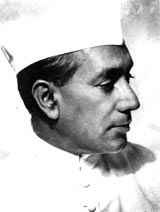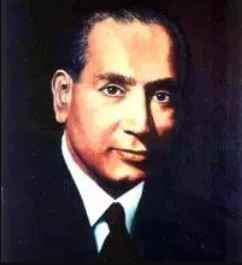Life of Birbal Sahni

Sahni got his early education at a Government College University, Lahore and Punjab University. He learnt botany under S R Kashyap. Sahni graduated from Emmanuel College, Cambridge in 1914.
Later he studied under Professor A C Seward. He was awarded the DSc degree of the University of London in 1919. In 1920 he married Savitri Suri, who was a constant companion. He died on 10 April 1949.
Works of Birbal Sahni
Sahni wrote numerous influential papers. In 1917, Sahni joined Professor Seward to work on a 'Revision of Indian Gondwana plants'. In 1919 he briefly worked in Munich under the German plant morphologist Goebel.Sahni served as Professor of Botany at Banaras Hindu University, Varanasi and Punjab University for about a year. In 1921 he was appointed the first Professor and Head of the Botany Department of the Lucknow University. In 1929 the University of Cambridge awarded him the degree of Sc. D.
In 1932 Palaeontologica Indica included his account of the Bennettitalean plant that he named Williamsonia Sewardi and another description of a new type of petrified wood, Homoxylon, bearing resemblance to the wood of a living homoxylous angiosperm, but from the Jurassic age.
Sahni was a founder of the Paleobotanical Society which established the Institute of Palaeobotany on 10 September 1946. The institute initially functioned in the Botany Department of Lucknow University but later moved to its present premises at 53 University Road, Lucknow in 1949.
Honours to Birbal Sahni

He was elected Vice-President of Palaeobotany section of the 5th and 6th International Botanical Congresses of 1930 and 1935.
In 1948 he was elected an Honorary Member of the American Academy of Arts and Sciences. He was elected an Honorary President of the International Botanical Congress, Stockholm in 1950 but he died before he could serve.




